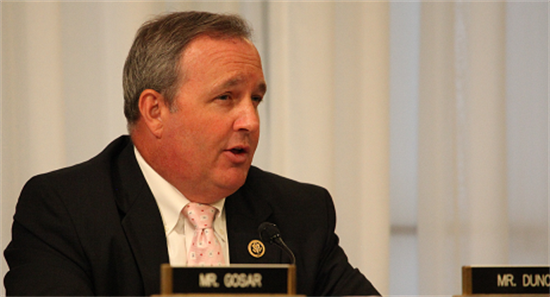Press Release
Controversial Social Cost of Carbon, Developed Behind Closed Doors, Jeopardizes Energy Production & American Way of Life
WASHINGTON, D.C.,
July 22, 2015
|
Committee Press Office
(202-225-2761)
Tags:
Full Committee
Today, the House Committee on Natural Resources held a hearing on the process and development of the Obama Administration’s Social Cost of Carbon (SCC), a controversial statistical model that is being incorporated into all environmental reviews subject to approval under the National Environmental Policy Act (NEPA). The hearing is the second in a series of oversight hearings on NEPA and the Obama Administration’s unilateral expansion of regulations across the American economy.
Chairman Rob Bishop (R-UT) commented: “The Obama Administration has given itself – and future administrations – a mammoth blank check to stop any project based on a radical fantasy. The Social Cost of Carbon is exactly that – a social restructuring of the way Americans live their lives. This unprecedented authority, disguised as an innocuous guideline for regulatory analysis, is a dangerous ideological weapon for the Administration. The numbers can be so easily manipulated that it simply allows any Administration to pick winners and losers, but the American people and the American way of life will be the ultimate losers.”
“Fossil Fuels have dramatically improved the lives of human beings… In fact because of fossil fuels we are now seeing china and India use more fossil fuels and we are seeing the standard of living go up, we are seeing personal percentage GDP go up, we are seeing life expectancy in china and India go up,” Rep. Duncan said. “I had a premature son, he was able to go into an incubator, and he was kept alive based on that. There are parts of the world that don’t have access to ready, reliable, affordable, fossil fuels to generate electricity. Because of that failure to have electricity they can’t have incubators or generators to do C-sections, children die.” Rep. Bruce Westerman (R-AR) stated: “As we think about the Social Cost of Carbon, we know that man-made carbon pollution can be traced back to the Industrial Revolution, and as carbon emissions increased, real wages increased (meaning that they rose faster than inflation), agricultural production increased (meaning food supply and quality increased), populations increased, life expectancy increased and quality of life improved, technology and health care improved. At the same time, poverty rates decreased, mortality rates decreased, and social barriers were removed." Click here to view additional information from the hearing. |
Newsletter Sign Up
Sign up to receive news, updates and insights directly to your inbox.

